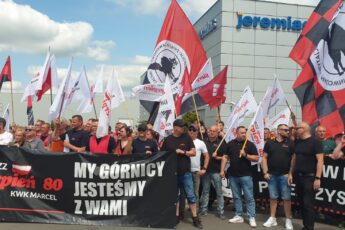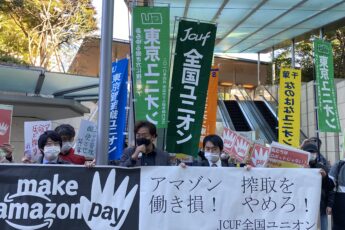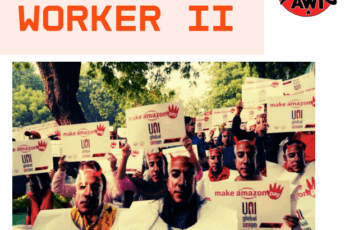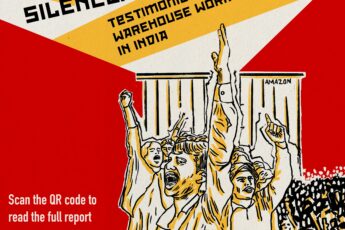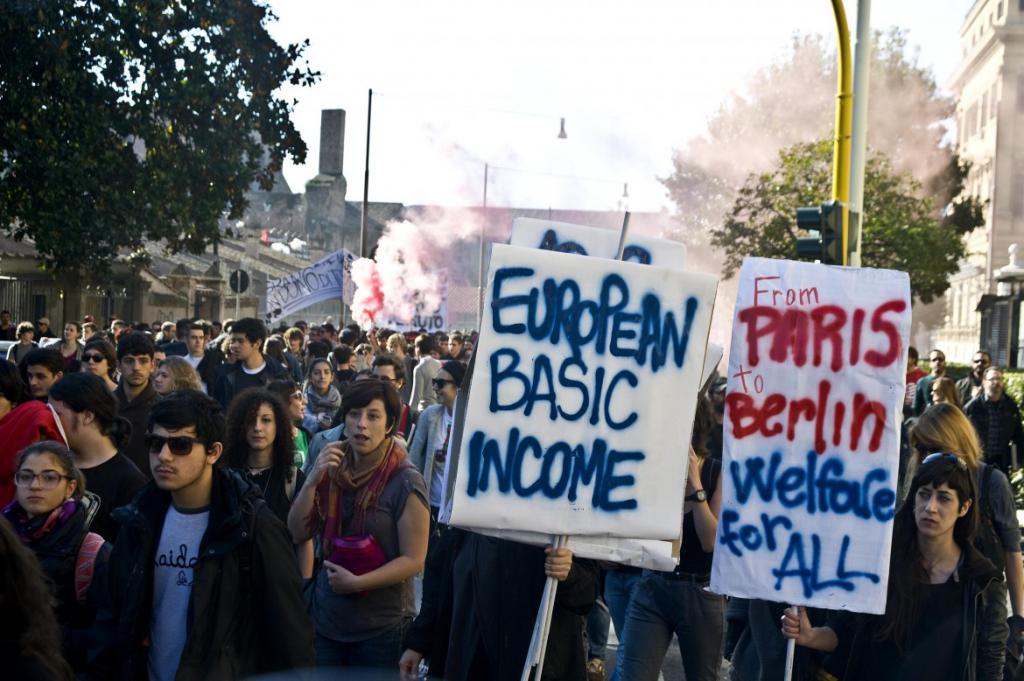
The French labor reform that is triggering a massive social strike throughout France is not just a national law: it is part of a European process of precarization and an attack on workers and labor rights. The loi travail is in fact very similar in its attack on workers to the Agenda 2010, implemented by Schröder right after the introduction of the single European currency. Even in the «rich» Germany precarity has become the norm. This is true not only for those who are employed with mini-jobs or for the unemployed who are pushed in a compulsory workfare system. This is true also for a great number of workers who are losing welfare benefits and pensions, threatened by poverty to accept whatever wage and working condition, in the factories, in the public service, in the households. While production, employers and anti-labour laws are organized cross-borders, our strategies are still developed around national dynamics. By showing the common threads of the European tendency towards precarization we want to point out the need of taking the transnational dimension as our field of intervention and of addressing the turning points and dynamics that can turn the French mobilization into a step forward towards the transnational social strike.
In these days the French president Francois Hollande is often compared with the former Bundeskanzler Gerhard Schröder, and the law for the reform of the labour market, the loi travail, with the Agenda 2010, which was, by the way, explicitly praised by Hollande. So there are enough reasons to take a closer look at the reforms in Germany and their connections to the current events in France.
In 2003, just in time with the introduction of the Euro and the common European currency area, Gerhard Schröder presented the Agenda 2010: an Agenda of far reaching reforms of the social system and the labour market, which was elaborated by business lobbies, like the Bertelsmann Foundation, and started a general attack on the living and working conditions of workers in Germany. This concerned the healthcare system, with the imposition of growing insurance contributions by the workers and simultaneous reductions of the services – so that for example today we can see again more people without teeth in the streets –, as well as the pension system, with the extension of the retirement age to 67, which in effect implied a decrease of pensions, because nearly no one is able to keep his job until this age.
But the core of the reform, the so called Hartz-Gesetze, targeted directly the labour market. These laws included the liberalization of dismissals, the unlimited use of temporary work and the introduction of new forms of atypical employment, like Mini- or Midijobs. Furthermore, with Hartz IV, the payment of Arbeitslosengeld I [unemployment insurance], calculated on the basis of the last salary received, was reduced from 32 to 12 months, and the former unlimited Arbeitslosenhilfe [unemployment assistance], which was also commensurate with the last salary, was suppressed completely. Since then, after 12 months of unemployment, there is only a minimal unemployment benefit, today a little bit less than 400 EUR, and this happens only when you have sold your house or car, and exhausted your last savings. So the target of the reforms were also the people at work, by being threatened directly with impoverishment in case you lose your job. But they also included the control, disciplining and punishment of the unemployed, by means of new silly measures and sanctions if they don’t accept lousy jobs.
But the Agenda 2010 was not left unchallenged. The years which saw the passing of the reforms, 2003 and 2004, were also the years with the biggest mass protests in Germany since the fall of the wall. I remember myself a huge demonstration in 2003 here in Berlin, with 100.000 people, which was completely self-organized, without the help of bigger institutions and Trade Unions. In 2004 there were the so-called «Monday’s demonstrations» against Hartz IV. Over the months self-organized demonstrations of workers and unemployed crossed the country, which at their peak included more than 200 cities and several hundred thousands of participants. Finally also the Trade Unions organized rallies and demonstrations with 250.000 people alone in Berlin, and half a million in the whole country. I don’t want to mythologize a German protest culture, which is, compared to other countries, especially France, really underdeveloped. But in times like this, when we are confronted with a narrative of a German consensus society, where everything is negotiated peacefully, it is good to remember, that even here this neoliberal attacks provoked mass resistances.
But obviously it was not enough. First of all there were no bigger strikes, because of legal restrictions but also because the trade union officials didn’t want to bring their social democratic comrades in the government into too much trouble. So the reforms were passed. The effects were a massive extension of precarious working conditions – Germany today has the largest low-pay-sector in the EU –, but also a brutalization of labour relations and of the social climate in general. Stress, stagnating or sinking wages, increasing working hours and a pervasive competitiveness characterize today nearly every workplace. At the same time the gap between the rich and the poor is growing rapidly. The 10% of the richest people in Germany possess more than half of the wealth of the society, meanwhile half of the population has to be lucky with only 1%. The German capital could use the stagnating wages and a growing productivity, together with the advantages caused by the common currency, to force an export offensive in the Eurozone. This is also one of the main reasons of the growing imbalances in Europe today. Since the beginning of the crisis in 2007/2008, it led directly to a deindustrialization process especially in Southern Europe, where the national economies entered a stage of permanent depression. The growing economic and political power is used by the German elites to push, in alliance with the native elites of the respective countries, for similar or even more radical measures like the Agenda 2010 in whole Europe.
The main argument which is used thereby is the so-called «competitiveness». But what does it mean? Competitiveness is nothing you can reach once and for all. It means a never-ending race to the bottom of worsening labour conditions, sinking wages and the destruction of all social and political rights, which are in the way of the exploitation of the Many for the sake of the Few. In Germany there is already talk of an Agenda 2020. What this will probably include you can see today in the protectorates of the Troika, in Greece, Ireland, Portugal and so on.
In France they say «contre la loi travail et son monde», that means against the labour law and its world, to express that it is about more than only a single law, but the whole system it represents. To be against the labour bill and its world means to stand against a state of authoritarian measures, currently in action in France; against the exploitation and oppression of workers in the name of competitiveness and of an always evoked «Sachzwang», that is literally «coercion by the thing»; therefore it means to stand against a world, where we are forced by the things we produce. A world in which every aspect of social and private life is subjected to the needs of capital accumulation: the more radical it becomes, the more it gets deeper into its own systemic crisis. So that’s in my opinion the world which we must end, in Paris, in Berlin, everywhere, today and every day.
Dietmar Lange (Blockupy Platform) – Intervention to the Global Debout15M Berlin


